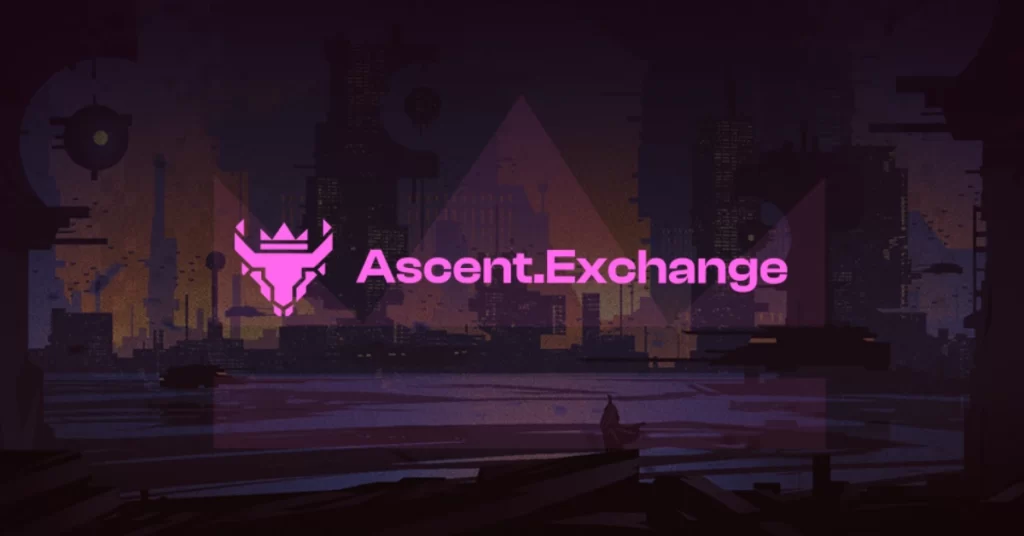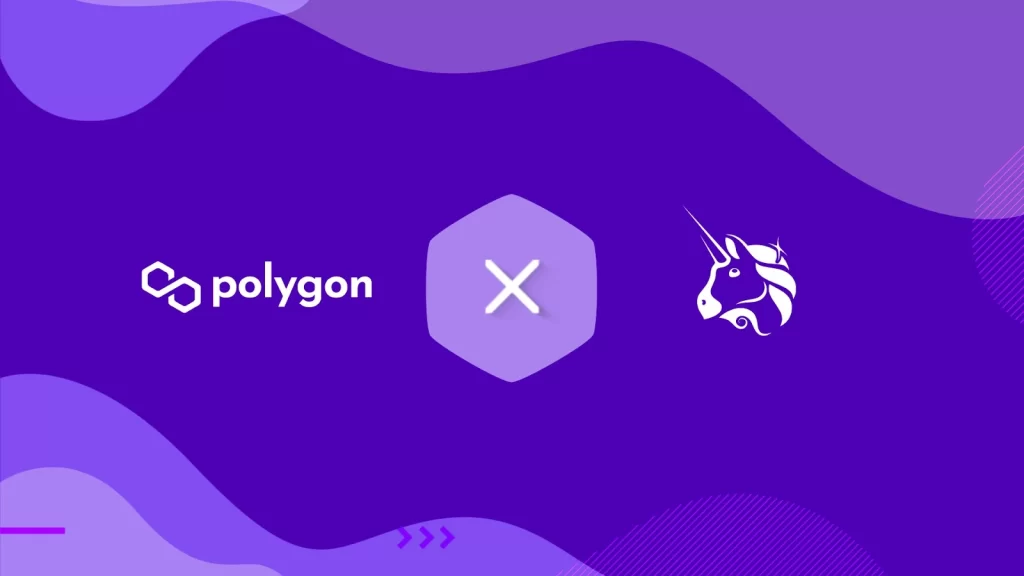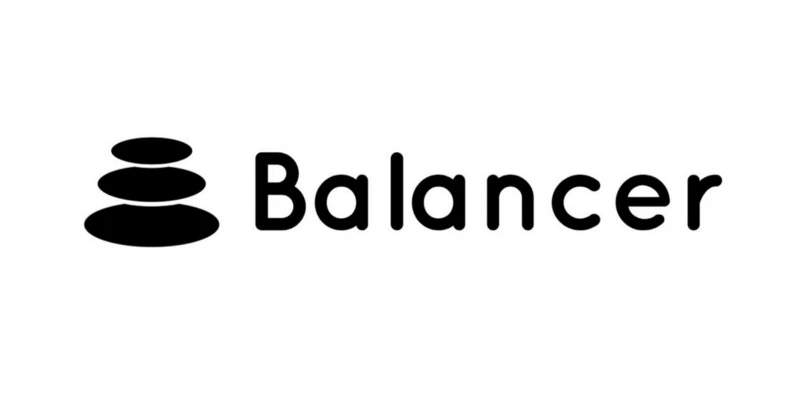In this piece, we dive into an extensive Polygon ecosystem to introduce you to the best decentralized exchanges (DEXs) it offers to DeFi enthusiasts. All the DEXs reviewed here stand out from the competition due to high-level security, fair service fees, and fast transactions, all enabled due to the technical innovation of the Polygon network.
A Quick Look at Polygon
Polygon is among today’s most booming layer-2 blockchains, built with scalability in mind. It is widely recognized for combining the best from Ethereum and similar sovereign networks into a fully functional, multi-chain platform. Polygon provides users with an experience that is much cheaper and faster than that of Ethereum, without compromising security and interoperability of the world’s second most popular blockchain infrastructure.
That’s why the Polygon network became the number one choice of many developers building in DeFi. Its popularity soared in 2021 when several projects were rolled out on Polygon almost daily. Among them were Web3, NFT marketplaces, DAOs, DeFi lending protocol, and, of course, decentralized exchanges. An increased demand for swapping crypto assets on DEXs led to the sharp surge of MATIC, Polygon’s native token used by both end users and developers to make transactions and create dApps on the platform.
As of right now, Polygon boasts more than $50 billion in DEX volume. This recent accomplishment marks an important milestone in the evolution of the network.
The Best DEXs on Polygon: Top 5 Picks
Currently, we see a great variety of decentralized exchanges flooding the thriving Polygon ecosystem. Following the repercussions of the 2022 crypto winter, it’s essential that everyone who taps into the DEX space can start with a battle-tested solution.
Good news is that you don’t have to sift through the existing multitude of DEXs available on the market. We determined the leading five by carefully examining each platform’s security efforts and successful track records. Moreover, we developed a set of other important comparative benchmarks to ensure that you can check all the essential information in one place and make a more informed decision. These benchmarks can be found in the table below:
| DEX | Year Founded | Symbol Token | Trading Fees | Earning tools | NFT Offering |
| Ascent | 2023 | AEX | – 0.025% for stable pools;- 0.2% for variable pools. | + | + |
| Uniswap Polygon | 2021 | UNI | – 0.05% for stablecoin trading pairs;- 0.3% for standard non-correlated pools like ETH and stablecoins;-1% for other pairs. | + | – |
| Quickswap | 2020 | QUICK | 0.3% | + | – |
| Curve | 2020 | CRV | 0.04% | + | – |
| Balancer | 2020 | BAL | the owner of the pool decides on the fee | + | – |
Now it’s time to find out more about why these DEXs are ranked among the top 5 platforms for safe and effective crypto swapping.
Ascent

Ascent Exchange kicks off our listicle as an innovative DEX incorporating the best practices of existing AMMs. At its core lies the novel DeFi tokenomics concept called ve(3,3), which blends the aspects of the vote-escrow mechanism from protocols like Curve with OlympusDAO’s (3,3) staking. This design was first proposed by Andre Cronje, founder of Yearn Finance, who added it to his latest project – Solidly Exchange.
Led by a strong management team, Ascent aims to revive three fundamental tenets of Solidly that have been long forgotten: grow community, contribute to decentralization, and deliver advanced functionality. The platform’s primary focus is to tackle inefficiencies related to liquidity incentivization and pricing within the platforms unfolded on Polygon.
The DEX has a few key differentiators that make it an unrivaled liquidity layer and AMM:
- A hybrid vAMM/sAMM model. The combination of these two technologies empowers Ascent users with advanced routing between assets, minimal slippage, the lowest fees in the market, and more effective capital allocation.
- The Ascent token – $AEX. Ascent leverages its native token $AEX to promote decentralized governance (alongside veAEX tokens that generate voting power for as long as they are locked in the protocol) and facilitate liquidity for ideal exchanging conditions through cultivating rewards.
- Exclusive aeNFT program. Non-fungible tokens from the Ascent’s bespoke collection can be staked by community members as well as other protocols on Polygon for desired DEX fee revenue sharing. The platform’s staking pool collects a share of trading fees from Ascent Exchange, while also receiving royalties from aeNFT sales on secondary markets.
- Bribing Marketplace. Anyone is welcome to add bribes on gauges using Bribing Marketplace to impact veAEX holders votes, increment the amount of $AEX rewards issued on the related pool, and create a flexible strategy for managing liquidity on Polygon.
Finally, Ascent can brag of top-notch security which relies on multisig technology, meaning that all transactions taking place on the platform require approval. Ascent Exchange’s source code has already undergone an audit from Hash0x who found neither high severity nor moderate severity issues. Besides that, a few more additional audits as well as a Bug Bounty program are soon to come.
Uniswap Polygon

Another prominent DEX on Polygon is Uniswap which offers a number of different versions, including the one that interests us the most – Uniswap Polygon. Effectively, all existing variations are merged into one full-fledged experience and serve to improve the platform’s capabilities. Due to this, Uniswap enjoys popularity as a DEX with remarkable stability, which works great for both swapping crypto assets and building dApps.
Uniswap Polygon saw the light of day in 2021 and grew to support 160+ coins and 500+ trading pairs since then. By opting for the platform, users gain exposure to one-of-a-kind opportunities for generating extra income, while developers get all necessary assistance to create applications that they can further capitalize on.
The list of other benefits provided by Uniswap includes:
- Enhanced privacy. Uniswap doesn’t require you to register on the platform and implies no burdensome verification procedures like KYC or AML. To get started with the DEX, all you need is to connect your crypto wallet;
- Intuitive interface. Uniswap has proved itself as a user-friendly DEX, accessible to everyone from crypto rookies to crypto veterans;
- Liquidity provision. With Uniswap, users can supply their idle assets into a certain liquidity pool and earn a proportional share of fees for every trade utilizing that pool.
Uniswap pays great attention to the security of its products and has a special Bug Bounty program that aims to incentivize the community to review the platform’s base code for vulnerabilities.
Quickswap

The next DEX in our list, Quickswap, represents a fork of Uniswap, providing almost the same look, user experience, and suite of settings, but with enhanced speed and lower fees. Affordable commissions coupled with close to zero gas costs is probably the DEX’s greatest feature and the main reason why it has been making waves over the past year.
Established in 2020, Quickswap is now considered one of Polygon’s biggest liquidity centers, trading almost 490 coins and 1015 trading pairs. Also, users can swap a wide variety of ERC20 tokens using the platform. Under the hood, Quickswap has a smart contract-powered system that enables automatic price determination.
Here are a few additional perks available on Quickswap that are worth noting within this review:
- Fiat-to-crypto onramp. Quickswap makes it possible to buy crypto assets with regular, fiat money. Among the payment systems supported by the DEX are Apple Pay, credit cards, and bank transfers;
- Spritz application. The feature integrated with Quickswap is designed for users who want to pay their card bills or mortgage from any wallet compatible with the Polygon network;
- Appealing reward system for liquidity providers (LPs). On Quickswap, LPs are rewarded with 0.25% of the fees generated by every swap made with the use of their liquidity;
- Dragon’s Lair staking pool. Quickswap allows for staking its native token QUICK. The pool brings 0.04% of all trading fees to its investors.
As for Quickswap’s security, the platform has already passed through several audits conducted by third-party firms like Omniscia, Arweave.net, and RD Auditors.
Curve

Curve takes precedence in the industry as a Polygon-based DEX aggregator. Similar to Uniswap, it comes with several distinct versions combined into a comprehensive, one-stop crypto trading platform, but much inferior in terms of its offering. At writing, Curve Polygon supports only 19 coins and 32 trading pairs.
As a renowned aggregator, Curve Polygon offers users to benefit from its in-built yield aggregator that can analyze prices across different chains and find the best deals to execute. This is exactly what drives the popularity of this DEX in the market. On Curve, users are also free to choose from a handful of earning opportunities, such as liquidity mining and the platform’s automated yield farming.
Additionally, we name a couple of other distinguishing features of the Curve Polygon exchange:
- Relatively low slippage. Because Curve was initially tailored to trading stablecoins and wrapped assets, it ensures that users experience low slippage for their swaps, thus mitigating risks of money losses;
- Great security efforts. Curve takes security seriously and utilizes smart contracts that have been carefully audited by independent companies. Just like Uniswap, the platform introduces bug bounties to encourage third-party builders to find and report any system exploits in exchange for rewards.
Balancer

The last but not least option is Balancer DEX that has been in operation since 2020. The platform seems to be less popular than its above mentioned counterparts, however, it also has some unique offerings which are worth your attention. One of them is Balancer’s commitment to refining liquidity pools and yield farms in the DeFi space.
Having around 80 coins and 105 trading pairs in its arsenal, this DEX allows its users to earn gains from their crypto deposits by opening up multiple pools for trading. Although Balancer strives for reducing transaction costs to the minimum, you can expect a fee from 0.0001 to 10%, since it’s up to the pool’s owner to decide on how much to charge from traders. So it’s of utmost importance to check out the fees of a given pool before choosing it for swapping.
Balancer DEX also has a number of other distinctive features, including the following:
- Automatic investment management. Balancer can automatically manage portfolios compatible with Ethereum Virtual Machines (EVMs) on behalf of its users with the help of in-house Automated Market Maker (AMM) feature.
- Start with no initial capital for arbitrage. Balancer users can capitalize on price discrepancies between exchanges by quickly buying and selling tokens without having to make any initial investments – something not typically feasible on most DEXs.
Choosing Your Perfect Polygon DEX – FAQ
Too long to read? No worries, as we’re here to answer the most common questions about the best decentralized exchanges on Polygon.
Out of reviewed DEXs, Quickswap is the grandest liquidity hub on Polygon, being home to almost 490 coins and 1015 trading pairs.
Ascent Exchange charges 0.025% fees for stable pools and 0.2% fees for variable pools.
After examining each DEX’s security efforts, we concluded that Ascent Exchange, Uniswap and Curve Polygon provide their users with the safest experience, using thoroughly audited smart contracts and initiating big bounty programs.
Ascent Exchange delivers low slippage and optimal price execution due to the platform’s Automatic Smart Routing feature, deep liquidity, and state-of-art AMM design. Meanwhile, Curve ensures that users experience low slippage for their swaps because it was originally designed to trade wrapped assets and stablecoins.
Source: https://coinpedia.org/information/top-5-polygon-dexs-to-consider-for-safe-and-effective-trading-in-2023/